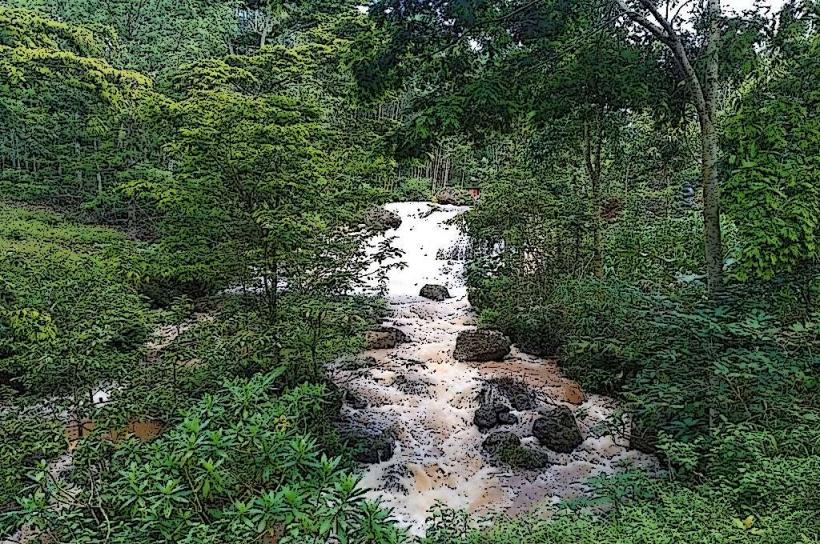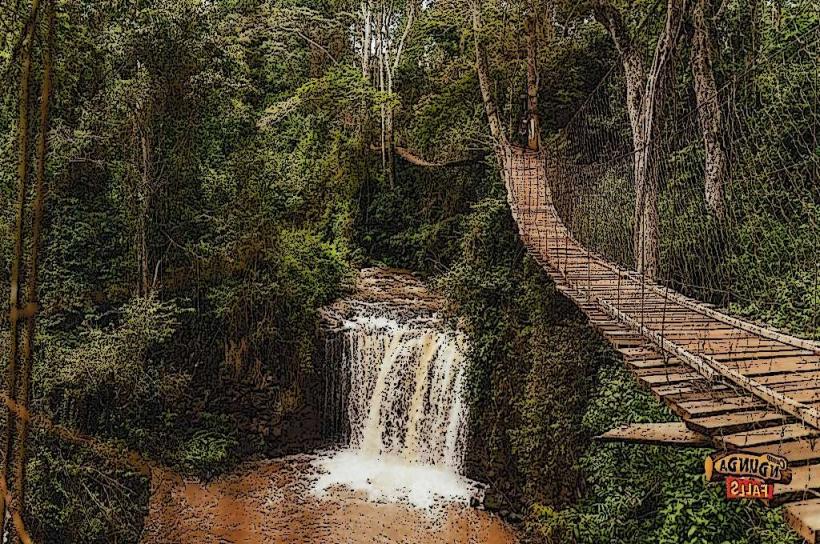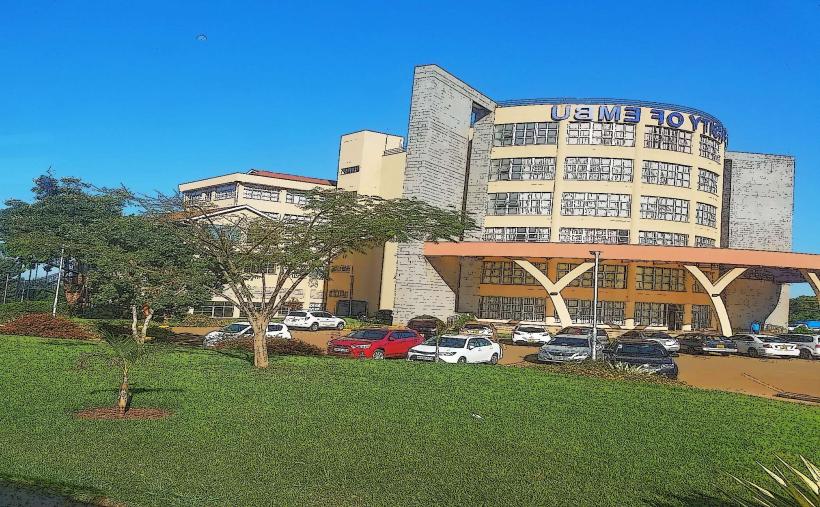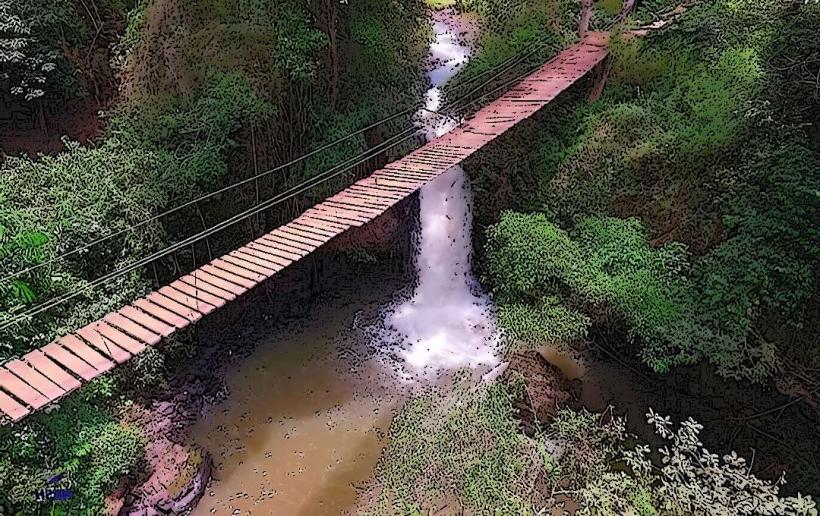Information
City: EmbuCountry: Kenya
Continent: Africa
Embu, Kenya, Africa
Embu is a town located in Embu County, in the Eastern Region of Kenya. It serves as the capital of the county and plays a significant role as a commercial, agricultural, and administrative center in the region. Embu is situated along the Nairobi-Meru highway, approximately 125 kilometers (78 miles) northeast of Nairobi and 70 kilometers (43 miles) southwest of Meru. The town's location provides easy access to both the highland areas to the north and the lowland plains to the south.
Geography and Climate
Embu is located at an altitude of about 1,400 meters (4,593 feet) above sea level, which contributes to its moderate, tropical climate. The town is surrounded by mountainous terrain, including the Mount Kenya ranges to the north and the Kavoo hills to the south. Embu is positioned at the foothills of Mount Kenya, which is the highest peak in Kenya, contributing to its unique climate and natural environment.
The climate of Embu is classified as tropical, with warm temperatures and distinct wet and dry seasons. The town receives relatively high rainfall, with the wettest months occurring during the long rains (March to May) and short rains (October to December). Average annual rainfall ranges between 1,200 mm (47 inches) and 1,600 mm (63 inches), making the region highly fertile and suitable for both crop farming and livestock farming.
Temperatures in Embu are moderate, typically ranging from 20°C (68°F) to 30°C (86°F), depending on the time of year.
Economy
Embu’s economy is driven by a combination of agriculture, trade, and services.
Agriculture: Embu’s fertile land is well-suited for a variety of agricultural activities. The region is known for tea and coffee production, with large tea plantations scattered across the area. Embu County is one of Kenya’s major producers of tea, and tea farming plays a crucial role in the local economy. Coffee is also grown, though on a smaller scale compared to tea.
In addition to cash crops, Embu is an important area for growing maize, beans, vegetables, fruits, and bananas. The town and surrounding areas support a diverse farming system that allows local farmers to grow both subsistence and commercial crops. Dairy farming is also prevalent in the region, with many farmers keeping cows for milk production.
Livestock Farming: The people of Embu also engage in livestock farming, particularly cattle, goats, sheep, and poultry. Embu is known for its traditional cattle farming, and dairy farming contributes significantly to the local economy.
Trade and Commerce: Embu serves as a market town for agricultural products. Its location along the major transport routes from Nairobi to Meru and Kitui makes it a key trading center for both agricultural goods and manufactured products. The town’s local markets are bustling with the exchange of fresh produce, livestock, and other goods. Embu is also home to several supermarkets, hardware stores, and retail businesses that serve the surrounding agricultural communities.
Tourism: Although not as heavily known for tourism as some other regions in Kenya, Embu has potential due to its proximity to Mount Kenya and other scenic landscapes. The area is increasingly becoming a destination for eco-tourism and hiking activities, particularly those interested in exploring the slopes of Mount Kenya and the surrounding forests.
Population and Demographics
Embu has a population of approximately 150,000 people, though the wider Embu County has a population of over 600,000. The town is predominantly inhabited by the Embu people, a Bantu ethnic group. The Embu people speak the Embu language, although Swahili and English are widely spoken in the area, especially for business and education.
The community is known for its agricultural expertise and strong ties to the land. Historically, the Embu people were involved in farming, but they also had a reputation as skilled traders. The region’s traditional lifestyle is influenced by cultural practices related to farming, cattle herding, and community rituals.
In terms of religion, Christianity is the predominant faith in the area, with various denominations, including Catholic, Protestant, and Pentecostal churches, present in the town. There is also a small percentage of people practicing Islam and traditional African religions.
Education
Embu has a well-established education system, with a number of primary and secondary schools available to local residents. The town is also home to Embu University, which provides higher education and training in various fields, including education, agriculture, and business. Embu University has contributed significantly to the local economy by offering courses that cater to the region's needs, particularly in agriculture and rural development.
In addition to formal education, Embu has several technical institutions and vocational training centers, which aim to provide practical skills to the local population in areas such as carpentry, electronics, plumbing, and catering.
Healthcare
Healthcare services in Embu are provided by both public and private institutions. The Embu County Referral Hospital is the primary government hospital in the area, offering a wide range of medical services, including outpatient care, emergency services, and specialized treatment. There are also private clinics and health centers in the town, which provide essential health services to residents.
While the healthcare infrastructure in Embu is improving, challenges remain in terms of access to quality healthcare, particularly in rural areas. Efforts to improve maternal health, reduce child mortality, and enhance access to medical facilities are ongoing, with both the local government and NGOs working toward better healthcare delivery.
Infrastructure and Transportation
Embu is well-connected by road to several key towns in the Eastern Region of Kenya. The Nairobi-Meru highway runs through the town, linking it to Nairobi, Meru, and other parts of the region. Embu is also connected to towns like Kitui, Mwingi, and Chuka, allowing for easy movement of goods and people.
Public transport is readily available, with matatus (shared minivans) and buses providing affordable transportation between Embu and other towns in the region. The town also has a bus station, from which passengers can travel to various destinations.
Challenges
Despite its growth, Embu faces several challenges:
Water Scarcity: Water availability is a challenge in Embu, particularly during dry periods. While the town receives significant rainfall, there are occasional shortages due to inconsistent rainfall patterns. The local government has invested in water projects, including boreholes and dams, to address this issue.
Youth Unemployment: Like many other regions in Kenya, Embu faces challenges related to youth unemployment. Despite the presence of various educational institutions, many young people in the region struggle to find employment opportunities, which has led to a rise in migration to urban areas in search of work.
Climate Change: Embu’s economy, which heavily relies on agriculture, is vulnerable to the effects of climate change, including erratic rainfall patterns, droughts, and floods. These environmental challenges can lead to crop failures and loss of livestock, affecting the livelihoods of many people in the region.
Conclusion
Embu is a dynamic town with a rich agricultural heritage and a growing commercial sector. Its location at the foothills of Mount Kenya makes it a key area for agriculture, especially tea, coffee, and dairy farming. The town’s proximity to Nairobi and other major towns adds to its importance as a transport and trade hub in the Eastern Region of Kenya. While Embu faces challenges such as water scarcity, youth unemployment, and the effects of climate change, the town continues to grow, driven by its agricultural potential, educational institutions, and strong community values.






